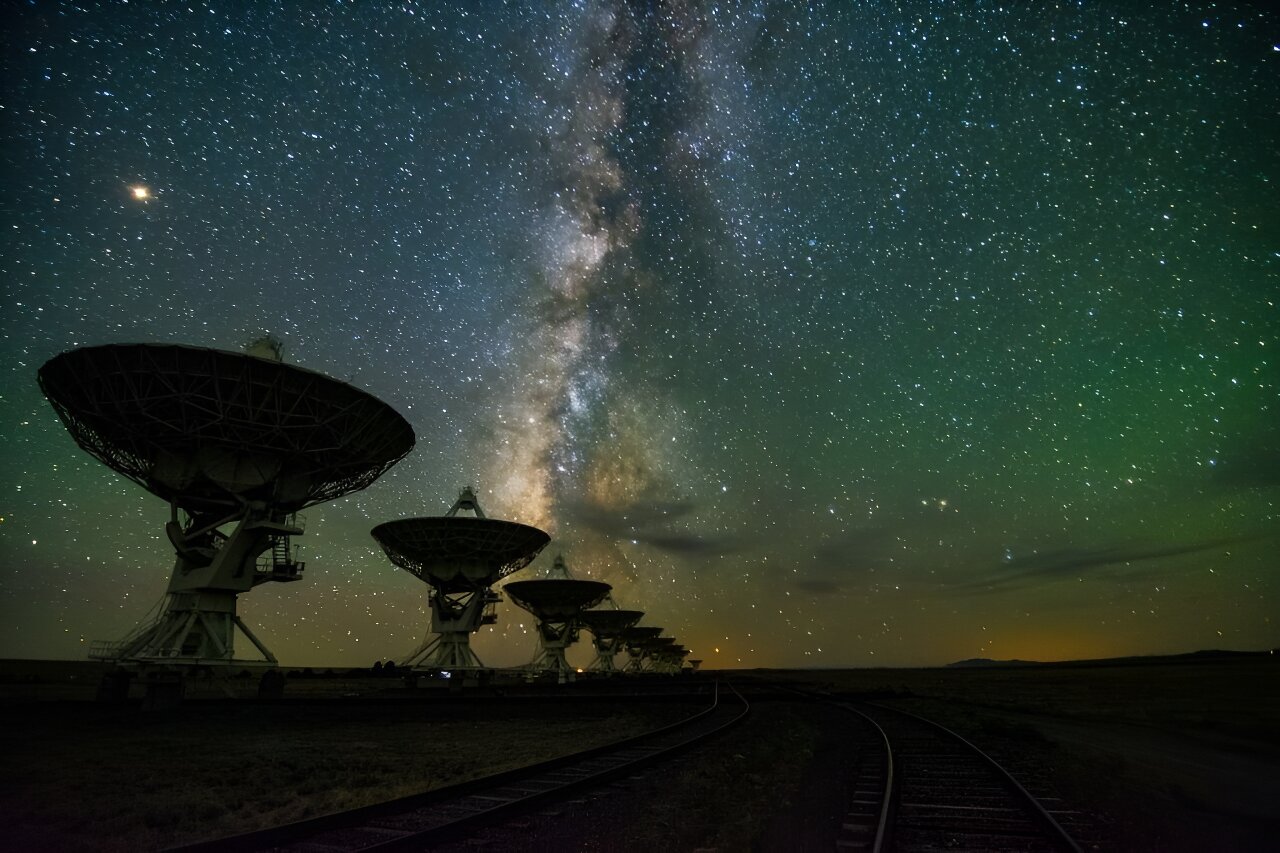American researchers have once again tried to solve the problem of the Fermi Paradox. Why don’t aliens come to us? Can’t they do it, or just don’t want to, leaving us in a kind of “zoo”?

Are we alone in the Universe
Researchers Ian A. Crawford and Dirk Schulze-Makuch have recently published a new paper on solving the Fermi Paradox. It was formulated in 1950 by an American physicist of Italian origin. It lies in the fact that somewhere in space, an extraterrestrial civilization should exist, but we cannot find any traces of its presence.
Since then, scientists and space exploration enthusiasts have made dozens of assumptions to solve this mystery. The new study was based on the most important of them. In 1975, American astronomer Michael Hart published a paper stating that, based on the enormous age of the Universe and the relatively short time it took for life on Earth to give birth to civilization, an alien intelligence should have visited every star in the Milky Way long ago. According to his calculations, it would take him only 650,000 years to do this.
In 1980, Frank J. Tipler performed an improved calculation and found that it would take 300 million years for aliens to fly around the entire Galaxy. This is much more than Hart’s, but aliens would have been on Earth long ago anyway. From this, they concluded that aliens did not exist.
Perhaps aliens exist
The Hart-Tipler Conjecture, which claimed that we were alone in the Universe, or at least in the Galaxy, was not liked by many. In 1983, Carl Sagan and other enthusiasts for contact with extraterrestrial intelligence published their own response to it.
In general, their criticism of the Hart-Tipler Conjecture boiled down to the statement that the absence of evidence was not yet proof of absence. To explain why we don’t see aliens despite their physical ability to reach us, many theories can be invented.
One of them is the “Zoo hypothesis”. It suggests that the aliens deliberately do not want to contact us, believing that we are not ready for this. Humanity is in a kind of nature reserve, fenced off from interplanetary life, which is actually boiling to the fullest.
Fermi Paradox
It was at this point that Crawford and Schulze-Makuch began their own research. They point out that if we don’t see alien civilizations, it can mean one of two things: either Hart and Tipler are right and there are no aliens, or we just don’t see them for some reason.
At the same time, the main argument against the Hart-Tipler Conjecture is the same as 40 years ago: the Copernican Principle. Our system is not unique. This means that life would just have to arise somewhere else.
If we simply do not see signs of aliens, then this may mean either that the aliens are too far away from us or that they deliberately do not want us to find out about them. As to how real the “Zoo theory” is in these conditions, the opinions of the authors are divided.
Crawford believes that aliens really may not be visible. But Schulze-Makuch, with reference to the same Copernican Principle, argues that this simply cannot be, and intelligent beings simply have to leave a bunch of traces of their existence.
Anyway, researchers are convinced that we need to continue exploring the Universe around us. Because, for example, aliens cannot hide biomarkers on exoplanets in any way. And this means that even if we live in a space zoo, sooner or later we will find evidence of this.
According to phys.org
Follow us on Twitter to get the most interesting space news in time
https://twitter.com/ust_magazine


